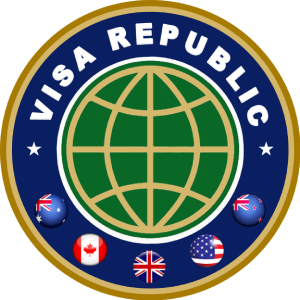Corporate Migration to Australia
Introduction
Corporate migration plays a pivotal role in shaping the economic and cultural landscape of Australia. It facilitates the entry of skilled professionals, entrepreneurs, and businesses into the country, contributing to innovation, economic growth, and cultural diversity. This comprehensive guide explores the key aspects of corporate migration to Australia, including visa options, benefits, challenges, and the application process, offering valuable insights for corporations and individuals aiming to navigate this journey successfully.

Visa Options for Corporates and Employees
Business Innovation and Investment Visa (Subclass 188)
Employer Nomination Scheme (ENS) Visa (Subclass 186)
Regional Sponsored Migration Scheme (RSMS) Visa (Subclass 187)
Temporary Skill Shortage (TSS) Visa (Subclass 482)
The TSS visa allows Australian employers to address labor shortages by bringing in genuinely skilled workers when they cannot source an appropriately skilled Australian. It includes short-term and medium-term streams, depending on the occupation and the needs of the business.
Benefits of Corporate Migration
Economic Growth
Cultural Diversity
Access to Global Talent
Challenges and Solutions
Navigating Complex Migration Laws
Integrating International Employees
Addressing Regional Needs
The Application Process
- Assessment of Eligibility : Businesses and individuals must first assess their eligibility against the specific criteria of the visa category they are applying for
- Nomination by an Australian Employer : For most work visa categories, a nomination by an Australian employer is required.
- Application Submission : The application, along with all required documentation, is submitted to the Department of Home Affairs.
- Processing : The application undergoes a review process. Processing times can vary depending on the visa category and the complexity of the case.
- Visa Grant : If the application is successful, a visa is granted, allowing the individual to work and possibly reside permanently in Australia.
Conclusion
Corporate migration offers a wealth of opportunities for both Australian businesses and international professionals. By navigating the visa application process effectively and addressing the challenges of integration and regional distribution, corporations can leverage global talent to foster economic growth, innovation, and cultural diversity within Australia. As the global landscape evolves, corporate migration remains a key driver of competitive advantage and societal enrichment for Australia.
Our Services
- Employer Sponsored Visa
- Employer Sponsored Visa
- Employer Sponsored Visa
- Employer Sponsored Visa
- Employer Sponsored Visa
- Employer Sponsored Visa
- Employer Sponsored Visa
- Employer Sponsored Visa
- Employer Sponsored Visa
- Employer Sponsored Visa
- Employer Sponsored Visa
- Employer Sponsored Visa
- Employer Sponsored Visa
- Employer Sponsored Visa
- Employer Sponsored Visa
- Employer Sponsored Visa
- Employer Sponsored Visa
- Employer Sponsored Visa
- Employer Sponsored Visa
